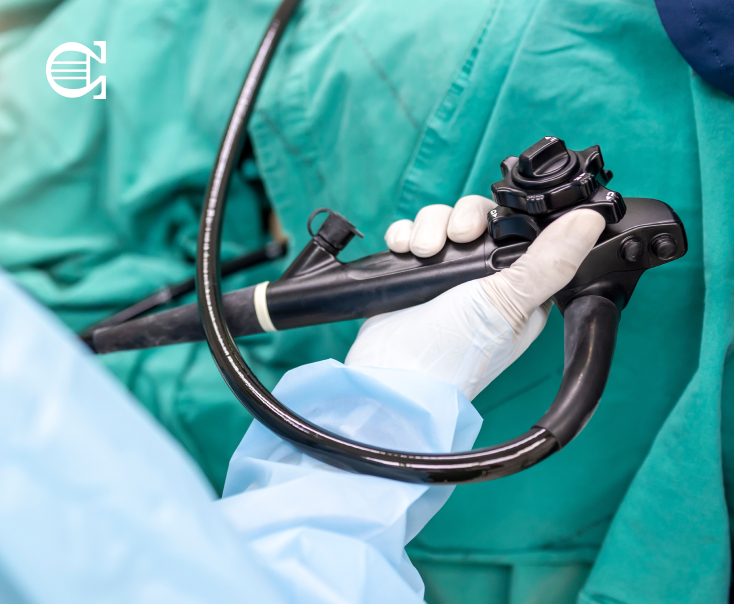Your Colorectal Health, Our Priority
With our comprehensive suite of screening services and treatment options, our experienced colorectal specialist and medical team promise you peace of mind whilst ensuring a strong and healthy colon.


What Is AColonoscopy?
A colonoscopy is a procedure that is done to thoroughly examine the lining of the colon and rectum. It is a long flexible tube that is inserted via the anus and is advanced along the rectum and colon until it reaches the beginning of the colon.
Why Do I Need A Colonoscopy?
Your doctor may recommend an examination if you have symptoms suggesting possible problems in the colon or rectum. Some symptoms include bleeding, change in your bowel habits, unexplained abdominal symptoms. It is also used to monitor patients with inflammatory bowel disease, and for follow-up of patients with history of colon cancer or polyp. It is also recommended to have a colonoscopy screening at the age of 50 years (younger if you have any family history of colorectal cancer).
A colonoscopy can effectively keep colorectal cancer at bay.
If you are in a higher-risk group, speak to your doctor to determine an appropriate screening schedule.
In the hands of an experienced specialist, a colonoscopy is a very safe, accurate and painless screening procedure.
What Are The Risks Of The Procedure?
The most serious complication that can occur is that of colonic perforation. The risk is less than 1 in 1000 or 0.1%. Perforation means break in the wall of the colon. This may be caused by direct trauma of the colonoscope pushing and causing a tear in the colon wall. In some cases, there is a delay in perforation after removal of a polyp. This is usually due to thermal injury at the time of polyp removal or when the cut is too deep into the wall of the colon. If perforation happens, surgery is usually required to rectify it, though there are now new but unproven techniques to try to close the hole through the colonoscope.
Are There Other Ways To Examine The Colon?
There are two other methods to examine the colon: barium enema and computer tomography (CT) colonography (also known as virtual colonoscopy).
It is important to remember that regardless of the technique, the colon still must be cleared of stools to ensure an accurate examination. The medications given for the different tests may differ but the end result, purging, is still the same.
Barium enema is performed by a radiologist who first inserts a tube through the anus. A bag of white liquid (barium) is then poured into the colon through the tube. The patient is rotated so that the barium can flow around the colon. The bag is then dropped to the floor and the barium allowed to flow out. Air is then pumped in through the tube to distend the colon and x-ray images are taken with the patient in different positions.
There is no sedation given for barium enema.
The other available technique to examine the colon is CT colonography or virtual colonoscopy. At the time of the investigation, the radiologist will insert a tube into the rectum via the anus. 1 to 1.5 litres of air will be pumped in to inflate and distend the colon. The patient will lie down on his back in the CT scanner, an intravenous injection given and the scan will be done. The patient will then lie in a prone position (on their stomach) and the process is repeated. The virtual image of the colon is then produced using computer software.
One of the reasons patients opt for barium enema or CT colonography is because they perceive colonoscopy to be more invasive and have a higher risk of complication, especially perforation. The reported risks of colonoscopy perforation are less than 0.1%, and in the hands of a skilled endoscopist it is much lower. Barium enema and CT colonoscopy also have a risk of perforation in the region of 0.05%.
It is also important to remember that if there are polyps or suspicious lesions detected on barium enema or CT colonography, it would be required to remove the polyp or for biopsy of the lesion.
To learn more about colonoscopy, visit our dedicated website - Colonoscopy Clinic in Singapore
FAQs About Colonoscopy
Our Colorectal SurgeonColorectal Specialist

Dr Ho Kok Sun
Consultant Colorectal & General Surgeon
MBBS (Singapore), M Med (General Surgery) (Singapore)
FRCS (General Surgery) (Edinburgh), FAM (Singapore)
Dr Ho Kok Sun has been committed to treating colorectal cancer for over a decade. This includes preventive care through providing colonoscopy in Singapore. He was the past President of the ASEAN Society of Colorectal Surgeons and the Society of Colorectal Surgeons (Singapore), as well as a founding member of the Eurasian Colorectal Technologies Association. Dr Ho was actively involved in the training of medical students and residents, and has published widely in reputable journals and book chapters. He believes that treatment should always be personalised to the patient’s needs.

